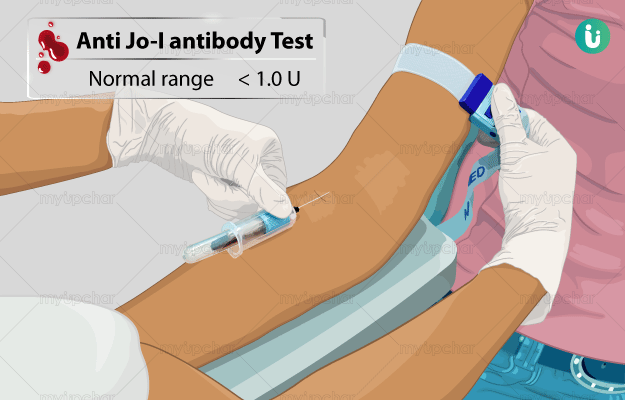What is Anti Jo-1 Antibody test?
Antibodies are proteins produced by the immune system to fight infections and eliminate foreign substances from the body. However, in some individuals, antibodies mistakenly start attacking body’s own cells leading to tissue damage. These antibodies are called autoantibodies, and the condition in which autoantibodies are produced is known as an autoimmune disorder.
Anti Jo-1 antibody is one such antibody which attacks the cytoplasmic histidyl tRNA synthetase (Jo-1) - a protein present in all nucleated cells of our body. These antibodies are most commonly found in patients with idiopathic inflammatory myopathies - disorders characterised by inflammation of muscles - particularly polymyositis and pulmonary fibrosis.
The anti Jo-1 antibody test is used for the diagnosis of polymyositis and pulmonary fibrosis. It is usually performed as a part of a group of tests called the extractable nuclear antigen (ENA) panel, which checks for the presence of autoantibodies that attack the proteins present in the nucleus of cells.






























